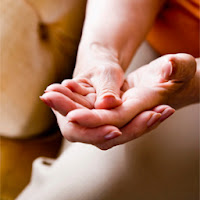
Q: What
are common causes of joint pain in women over 40?
Marla
Ahlgrimm: As
the body’s hormone production naturally decreases, many women experience
aches and pains in their joints, muscles and connective tissues. Joint pain in
menopausal women may be caused by diminished estrogen levels. Estrogen is
important for the body’s creation of synovial fluid, the liquid that
lubricates the joints.
Q: Which
is better for joint pain, synthetic or bioidentical hormones?
Marla
Ahlgrimm: While
synthetic estrogens and progestin have been prescribed by doctors for
decades, they may actually exacerbate the symptoms of unexplained
joint pain. Bioidentical hormones—those a woman naturally produces—are a much
better option. Minor or infrequent joint pain may be managed with exercise,
diet changes and the occasional use of anti-inflammatory medication.
Q: How
can a woman prevent joint pain?
Marla
Ahlgrimm: Joint
pain is not an inevitable part of the aging process, especially during
menopause. Women who begin to feel stiff and achy after 40 should exercise
regularly to maintain flexibility. A healthy diet and adequate rest are also
essential to ward off joint pain. The body cannot repair itself without deep,
REM sleep and proper nutrients.
Q: Does
weight affect the joints?
Marla
Ahlgrimm: Yes,
even a few pounds can negatively affect the ankles, knees and hips. For each
pound of excessive weight, the knees experience 10 pounds of force.
Q: Where
do women most often feel joint pain?
Marla
Ahlgrimm: Women
who feel uneasy due to fluctuating hormone levels feel it all over.
However, the hands are what most women say begins to become
painful first.
Q: Aside
from hormones, are there any supplements that may be useful to maintain joint
health?
Marla Ahlgrimm: A high-quality glucosamine and
chondroitin supplement is often very helpful but may take three to six months
for full effect. Capsaicin, which is available in a topical gel, may also
reduce localized joint pain.
No comments:
New comments are not allowed.